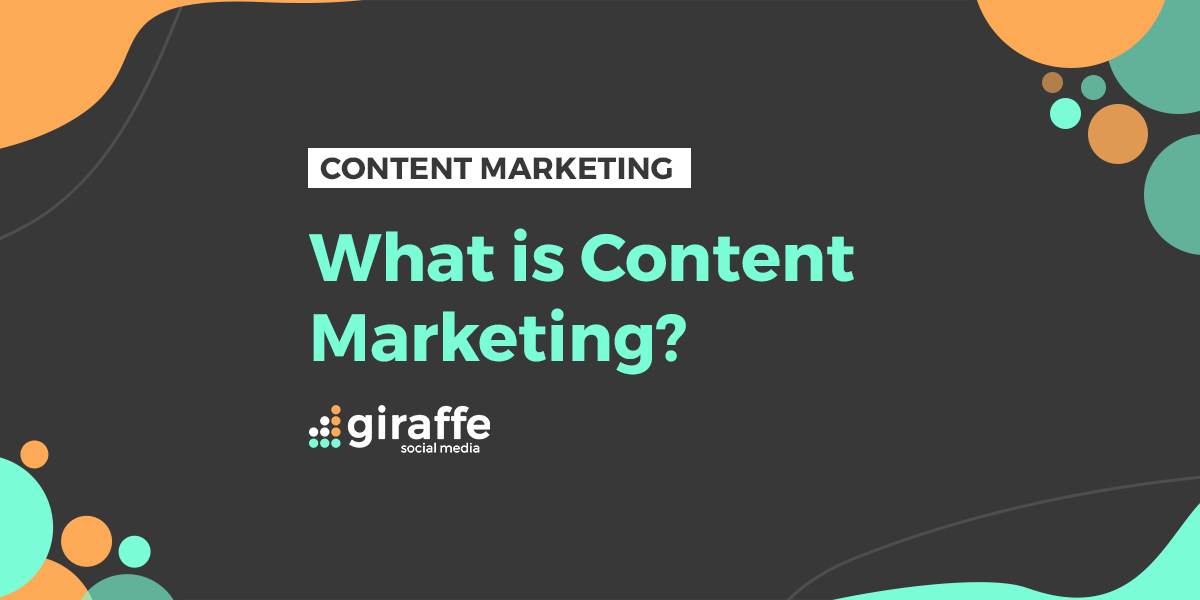Digital marketing is full of branches and different sections that make up its vast and brand beneficial structure. One of those branches, alongside email marketing and social media marketing, is content marketing.
Often overlooked, content marketing is a great way to interest and educate your audience, make people aware of your brand and really add value to your customers’ and clients’ lives. But, where did it start and what exactly are the benefits of this branch of digital marketing, that the others do not have?
What is content marketing?
The Content Marketing Institute states that content marketing is ‘a strategic marketing approach focused on creating and distributing valuable, relevant, and consistent content to attract and retain a clearly defined audience — and, ultimately, to drive profitable customer action.’ The site identifies a shift away from traditional forms of marketing and a movement towards the digital world – if you aren’t using forms of digital marketing, like content marketing, then your brand is likely to get left behind in the modern age.
Moreover, as we sum up, content marketing is vital to digital marketing. The content you write offers value to your audience as it must be interesting and informative. It’s essential to both your brand and the customers that are interested in your business. That’s why it should be helpful to clients, customers or businesses in your industry, so they can share the information to their audience on social media. It’s also a great tool to help create lasting relationships between consumer and business and educate your audience on topics that matter. As the Content Marketing Institute continues, ‘content marketing isn’t about the brand, your products, or your services. It’s about your audience.’ It’s about what they care about.
For example, if you were selling smoothies, you could write content articles on the health benefits of certain fruits and vegetables. For instance, ‘Do carrots help with your eyesight?’ You could share email newsletters with tips on staying healthy in the winter season. The subjects are endless if you know what you’re doing!
What are the different types of content marketing?
There are lots of different types of content marketing that can be useful to your business – you just need to pick and choose which ones will be most beneficial to your brand.
HubSpot have identified twelve different types of content, including: blogs, videos, infographics, case studies, e-books, user-generated content, checklists, memes, testimonials and reviews, whitepapers, how-to guides and academies and influencers and paid ad content. It’s a vast pool for you to choose from and each one has its own benefits. However, you need to consider time factors and your audience. There is no point in setting yourself the job of daily articles, a daily newsletter and a weekly e-book. That’s too much work for one person and can lead to quite dull and boring content if there is too much of it being produced. Also, it can become quite spammy to those customers that have signed up or read your content. No-one wants the same type of email in their inbox every single day. You will run out of things to talk about and end up repeating yourself, if you’re not careful.
Thus, stick to what you know at the beginning – start off with a new blog articles, create some nifty infographics and upload any testimonials and reviews. Judge what works and what doesn’t and go from there!
What are the benefits of content marketing?
As we discussed in our article on the Content Marketing Matrix, content marketing can be hugely beneficial to your business. For example, one of the biggest benefits of content marketing is that it can create legitimacy and trustworthiness between you and your customers. Content opens up a line of communication between you and your audience. You’re helping them and providing valuable information. They could benefit from your blog article, so feel more obligated to buy your products or use your service. Other advantages include increased conversion potential, more referral and social traffic, improved brand reputation and when done right, can make you appear higher in search engines. According to Inc, content marketing can also help decrease marketing costs and compounding value (sometimes the work just does it itself), provides universal utility (the idea that anyone can do it, even if your industry is quite dry), and creates tighter customer or reader relationships. Also, it gives your brand a higher domain authority (with content you can increase your perceived experience, expertise and authority). Thus, people are more likely to trust you and your site. You’ll also have more on-site content, so there’s more to click through and more variety on your site – it also makes your website look better and more complete. You can also share more varied content to your social media too by simply sharing the blog posts to the platforms.
Content marketing can help give potential customers or clients the information they need to make a purchase or establish yourself as a trustworthy source to buy from.
Where do I start?
Firstly, you need to create a strategy which means you’ll have to consider lots of different things. However, first you must decide on and define your goals – what do you want to achieve from your content marketing? Is it sales, awareness, engagement, or something else? Pick an objective and stick with it. You can always change it later on down the line.
Make sure you research your audience and find a niche. You can then base your strategy around those that you want to attract. For example, if you’re a beauty salon in London, you will want to share content on beauty treatments and how to get the most out of your experience at the salon. You could also talk about things happening in London too and events that are happening in your industry.
As social media specialists, we help businesses all around the world reach their digital marketing objectives, including their content marketing goals. If your business needs help with content marketing, please get in touch today.





